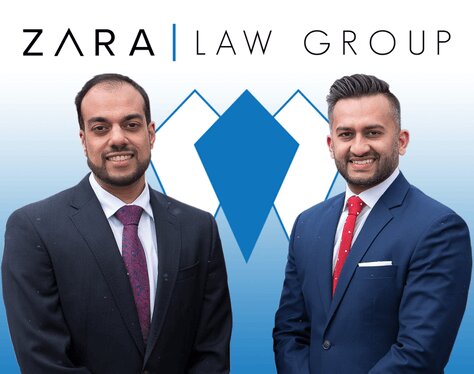Best Motorcycle Accident Lawyers in Illinois
Share your needs with us, get contacted by law firms.
Free. Takes 2 min.
Or refine your search by selecting a city:
List of the best lawyers in Illinois, United States

John J. Malm & Associates Personal Injury Lawyers
1 hour Free ConsultationAbout Motorcycle Accident Law in Illinois, United States
Motorcycle accidents are a significant concern in Illinois due to the unique risks that riders face compared to drivers of other vehicles. Motorcycle accident law in Illinois is designed to address the complexities involved in these incidents, including injury claims, liability determination, and insurance procedures. Illinois law requires motorists and motorcyclists alike to share the road responsibly and follow safety standards. However, when an accident happens, understanding your rights and obligations is critical to protecting yourself physically, financially, and legally.
Why You May Need a Lawyer
After a motorcycle accident, victims may encounter various challenges where assistance from a legal professional becomes invaluable. Some common situations include:
- Severe injuries requiring significant medical treatment and leading to expensive bills
- Disputes with insurance companies over compensation or claim denial
- Difficulty proving fault or negligence in the accident
- Involvement in multi-vehicle accidents or accidents with unclear liability
- Facing legal action from other parties
- Pursuing compensation for lost wages and pain and suffering
- Navigating Illinois-specific motorcycle and traffic laws
A lawyer specializing in motorcycle accidents can ensure your rights are protected, help you build a strong case, negotiate with insurers, and pursue fair compensation.
Local Laws Overview
Illinois has specific laws addressing motorcycle operation, accident claims, and insurance:
- Helmet Laws: Illinois does not legally require motorcyclists or passengers to wear helmets, though protective eyewear is mandatory.
- Comparative Fault: Illinois follows a modified comparative fault rule. If you are found to be 50 percent or less at fault for the accident, you can recover damages. If your fault is greater, you may be ineligible for compensation.
- Reporting Requirements: Accidents resulting in injury, death, or more than 1,500 dollars in property damage must be reported to the police and the Illinois Department of Transportation.
- Insurance: Illinois law requires motorcycle owners to carry minimum liability insurance coverage.
- Statute of Limitations: Personal injury claims must typically be filed within two years of the accident date, but some exceptions may apply.
- Lane Splitting: Lane splitting, defined as riding between lanes of traffic, is illegal in Illinois.
Frequently Asked Questions
What should I do immediately after a motorcycle accident in Illinois?
Ensure your safety and the safety of others, seek medical attention, call law enforcement, exchange information with involved parties, gather evidence (photos, witness details), and report the accident. Notify your insurance company as soon as possible.
Do I have to wear a helmet while riding a motorcycle in Illinois?
No, helmets are not mandatory in Illinois for motorcyclists or passengers, but using protective eyewear is required by law and wearing a helmet is strongly recommended for safety.
What types of compensation can I claim after a motorcycle accident?
You may claim compensation for medical expenses, lost wages, pain and suffering, property damage, and other related costs depending on the specifics of your case.
How is fault determined in a motorcycle accident in Illinois?
Fault is determined based on the circumstances, available evidence, and sometimes input from accident reconstruction specialists. Illinois applies comparative fault, meaning compensation may be reduced by the degree of your responsibility.
What if the other party does not have insurance?
If the at-fault party is uninsured, you may be able to claim against your own uninsured or underinsured motorist coverage, if included in your policy.
How long do I have to file a motorcycle accident claim?
Generally, you have two years from the date of the accident to file a personal injury lawsuit, and five years for property damage claims. It is best to act quickly to preserve evidence and witness memories.
Will my insurance rates increase after a motorcycle accident?
This depends on the circumstances of the accident and your insurer's policies. If you are found at fault, your rates may increase. Speak with your insurance representative for specific information.
Can I still recover damages if I was partially at fault?
Yes, as long as your fault does not exceed 50 percent, you can recover damages reduced by your percentage of fault as per Illinois's comparative fault law.
What should I avoid saying to insurance adjusters?
Avoid admitting fault, speculating about the accident's causes, or minimizing your injuries. Only provide factual information and consider consulting a lawyer before making recorded statements.
How can a motorcycle accident attorney help me?
An attorney can investigate your case, gather necessary evidence, handle communications with insurers, negotiate settlements, represent you in court if needed, and maximize your compensation.
Additional Resources
- Illinois Department of Transportation - Motorcycle Safety
- Illinois Secretary of State - Motorcycle Laws and Licensing
- Illinois State Bar Association - Lawyer Referral Service
- National Highway Traffic Safety Administration - Motorcycle Safety Information
- Local legal aid organizations (visit your county bar association or courthouse for referrals)
Next Steps
If you have been involved in a motorcycle accident in Illinois and are seeking legal advice, carefully document all details related to the incident, including photos, witness contact information, and medical records. Contact a qualified attorney who specializes in motorcycle accident cases to review your options and guide you through the claims process. Do not delay, as there are strict time limits for filing claims. Remember, an experienced lawyer can provide essential support and help protect your rights as you pursue fair compensation.
Lawzana helps you find the best lawyers and law firms in Illinois through a curated and pre-screened list of qualified legal professionals. Our platform offers rankings and detailed profiles of attorneys and law firms, allowing you to compare based on practice areas, including Motorcycle Accident, experience, and client feedback.
Each profile includes a description of the firm's areas of practice, client reviews, team members and partners, year of establishment, spoken languages, office locations, contact information, social media presence, and any published articles or resources. Most firms on our platform speak English and are experienced in both local and international legal matters.
Get a quote from top-rated law firms in Illinois, United States — quickly, securely, and without unnecessary hassle.
Disclaimer:
The information provided on this page is for general informational purposes only and does not constitute legal advice. While we strive to ensure the accuracy and relevance of the content, legal information may change over time, and interpretations of the law can vary. You should always consult with a qualified legal professional for advice specific to your situation.
We disclaim all liability for actions taken or not taken based on the content of this page. If you believe any information is incorrect or outdated, please contact us, and we will review and update it where appropriate.
Browse motorcycle accident law firms by city in Illinois
Refine your search by selecting a city.













